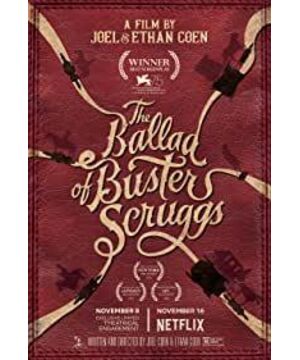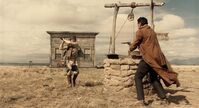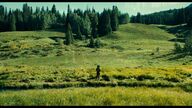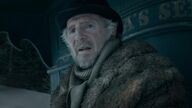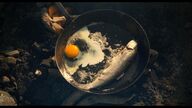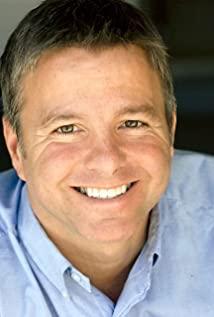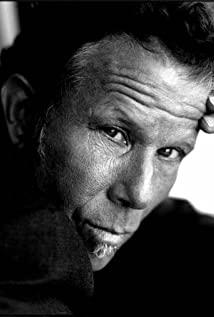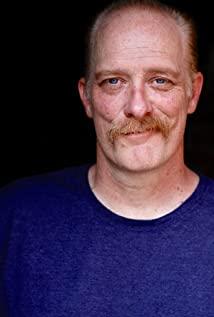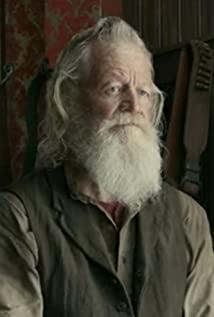Six stories, six characters, and one ending. Eight years later, the Coen brothers once again led us through the "Bast Scruggs Ballad" through the "Bast Scruggs Ballad" to experience the appearance of all beings in the Western World.
Story 1: The Ballad of Buster Scruggs
In my past cognition, most desperadoes in the west appeared in the image of Strong Silence Type, tough, gloomy, reticent and even a little sloppy. But in the story of this chapter, as the song "Cool Water" gradually enters our ears, what comes into our eyes is a white horse, holding a guitar while playing and singing. The first impression of the melodious baritone is that it is amiable, harmless to humans and animals, and is at best a supporting role.
But when Scruggs came up, it was a five kill, and the operation of blasting the sky made me shiver. What kind of support is this, it is completely the performance of the output position of the national service! Afterwards, the three-legged operation of showing the sky in the town tavern was even more shocking and took my knees properly. Perhaps the opponent is too weak, or he is really too powerful. The long-term assembly line, even a little bit of a murderous operation, inevitably makes Scruggs conceited, and this conceit also paved the way for his ending. After all, there is still a mountain high.
The next two last scenes of the story are also the most interesting parts. The first act is the appearance of a black cowboy with a dark horse. When this dramatic character appears in sharp contrast with the image of Scruggs' white horse in white, it is actually showing the final outcome of Scruggs.
The second act is the ascension of Scruggs, which makes me feel that life and death are often not so important in the values of the western world, and that black and white fairness is the first rule. This may be the most effective way to distinguish between humans and animals in an environment where the weak and the strong eat the flesh. Although Scruggs killed a lot of people, he did not kill innocent people indiscriminately. Every time he shot, he was almost fighting for justice for himself.
It's ridiculous to say that Scruggs's way of chopping melons and vegetables is just to play a game of poker, a fair game of poker.
It is worth mentioning that, as the opening story of this film, Scruggs’s performance in direct dialogue with the characters is like shaping Scruggs into a leader who leads the audience in a relaxed way. Enter the cruel western world.
Story 2: Near Algodones
Robbers and gangsters are an indispensable part of the western story. Fu Lanlan plays a robber for us in this story, a robber with ill-fated fate. The attempted bank robbery was tied to hang, but he was lucky enough to be saved when he was executed. I thought I had escaped this way, but what I never expected was that the scar on my neck hadn't subsided and I was caught on the gallows for other charges for some reason. Fu Lanlan’s experience can be summed up with an old Chinese saying: Hades wants you to die for the third watch, who dares to keep you until the fifth watch?
In this story, there is a scene I think is most worthy of our taste. On the final gallows, Fu Lanlan also joked to the fellow prisoners with great interest, accepting death with an attitude of indifferent life and death, and mocking death at the same time.
As everyone knows, in the western world, only death has the right to laugh. Just before Fu Lanlan died, he saw a girl who was particularly eye-catching in the audience. The moment they looked at each other, the girl smiled at him, right here. In an instant, from Fu Lanlan's eyes, it can be seen that he rekindled his yearning for life. Unfortunately, at this instant, he was executed. He, who was dead without regret, turned into a grudge at this instant. All day long. This is the most thorough mockery from death.
In the black and white concept of the Western world, the consequence of crime is death, not reporting, and the time has not come. Your fluke is just because destiny hasn't played you through.
Story 3: Meal Ticket
The meal ticket, which is the most beautifully named among the six stories, perfectly describes the relationship between the two protagonists in the story. In this story, Liam Neeson is the owner of a mobile theater troupe, but this troupe has only two people, he and an actor without limbs. No one can leave between them. The boss needs to rely on the actors to make money, and the actors need to rely on the boss to take care of themselves. They have reached a mutually beneficial symbiotic relationship.
At the beginning, every performance of the troupe was full of friends, but as the audience's curiosity about the actors faded, fewer people came to see the performance, and the revenue of the troupe also decreased. Just as the troupe owner was melancholy about this, he saw a new hope: a chicken that could count.
The moment the boss bought the chicken, it actually announced the fate of the actor about to be abandoned. However, in the western world, abandoning means death. The smile of the troupe boss before abandoning the actors is the most disgusting moment in the whole movie, which perfectly interprets the despicable look of the dirty guy.
In my opinion, an actor without limbs is an extreme symbolism, symbolizing those who are weak and need to rely on others to survive. In the western world, the weak and small can survive, but the premise is that they must provide value. There is no value, even if it is a human being, it is not as good as a chicken.
Story 4: Golden Valley
Many people who break into the Western World have a gold rush dream, and this story is officially a story about a gold digger. In fact, this story is very simple. The special thing about this story is that the Coen brothers showed the audience a western scene that is completely different from the previous three stories: green mountains and green waters, birds and flowers, accompanied by the leisurely and contented singing of gold diggers, as if to form a picture of harmony between man and nature. scene.
But in this story, what I want to discuss with you is the owl that appeared many times and the reindeer that only appeared before and after the story. In Western culture, reindeer symbolizes nature, harmony and auspiciousness. In the story, with the appearance of the gold digger, the harmony of nature is broken, and the reindeer leaves; with the departure of the gold digger, nature returns to harmony and the reindeer returns. This is somewhat ironic that it is impossible for humans and nature to coexist in harmony.
The owl is the incarnation of Athena, the goddess of wisdom, symbolizing wisdom, reason and justice. In this story, the owl that appears many times monitors everything in the canyon like a guardian. It appears when the gold prospector walks into the canyon; it appears when the gold prospector steals the bird's egg; in the gold prospector When it was attacked, it appeared; when the gold digger left, it appeared. Its appearance is like silently controlling justice in this gorge for nature, monitoring your every move.
In the western world, it seems that something is always watching you with a ruler of justice. It may be transformed into an owl or something else, but it is certain that you cannot escape its eyes. Everything you do is handed over to fate for judgment through it.
Story Five: The Upset Girl
Just imagine such a scenario. During the long migration journey on the western grasslands, your brother, and your only relative, suddenly died of cholera. You are penniless, and what will you do if you don’t have a shop in front of you and the village behind you? By the way, and you are still a girl.
Do feelings of anxiety, panic, and even despair arise spontaneously? However, this unprepared situation is what the protagonist of this story, Miss Alice, needs to face.
Alice’s purpose of this migration is to marry a stranger she has never met so that his brother can find a job. It can be seen here that Alice's life is not in her own control. As her elder brother died of illness during the journey, her destiny seemed to be in her own control, but she was unaccompanied and penniless and had to put her destiny in the hands of another man again-Mr. Knapp , A man who helps her out of trouble as long as she is willing to marry him. Although the two of them developed love for each other in the subsequent exchange of faith, Mr. Knapp's act of taking advantage of the fire is really contemptuous. With the initiation of love, Alice felt a sense of security that she had never had in her life, and showed a smile for the first time in the story, that kind of smile from the heart.
But just when Alice thought that her life would be getting better, the naughty fate made a joke to her, and she failed to survive the joke.
In the western world, under the influence of the values of male superiority to female inferiority in the old society, women did not have much choice, and the weakness of women was magnified into helplessness, and love was a vain thing. In the absence of anyone to rely on, what awaits a woman, in addition to being abused, there are also some encounters that you never want to know, and of course the mockery from fate.
Story 6: Remains
This is the last story, and it is also the most fable, a fable about people accepting the fact of death.
The hunters, old women, and French people on the carriage can be regarded as you, me, and others in life, generally referring to ordinary people, while Mr. Mustache and Mr. Clarence are soul harvesters and ferrymen.
At first, when the three ordinary people were arguing and discussing, they might not even know the fact that they were dead; they didn’t start until Mr. Clarence hummed "The Unfortunate Lad". Feeling puzzled; then after Mr. Mustache turned around to show their identities, the three ordinary people panicked to realize the fact that they had died; the silence of being unwilling to get off after the carriage arrived at the station was like their last nostalgia for the world. . Finally, they opened the door and walked into the hotel. It was their acceptance of the fact of death.
In the last scene when we opened the door of the hotel and walked into the hotel, there are two symbols that are worthy of our taste.
The first is the gate of the hotel. The signs of angels and demons (rams are symbols of the devil) on the gate indicate that this is a place of judgment, which will determine whether they go to heaven or hell.
The second place is the light-shrouded staircase in the hotel, indicating that this is the "Passage" mentioned by Mr. Mustache, a road leading to another world.
Ignorance-doubt-fear-silence-acceptance, this may be the process of accepting the fact that oneself is dead.
In the Western World, no matter who you are and what kind of life you lead, death is the only end for everyone.
Although there is no direct connection on the surface of the western sentient beings formed by the above six stories, they all have the same ending, that is, death. This black and white western world is more like the real world under a microscope, but no matter which world it is, human beings will always be small in the face of fate and death.
View more about The Ballad of Buster Scruggs reviews


